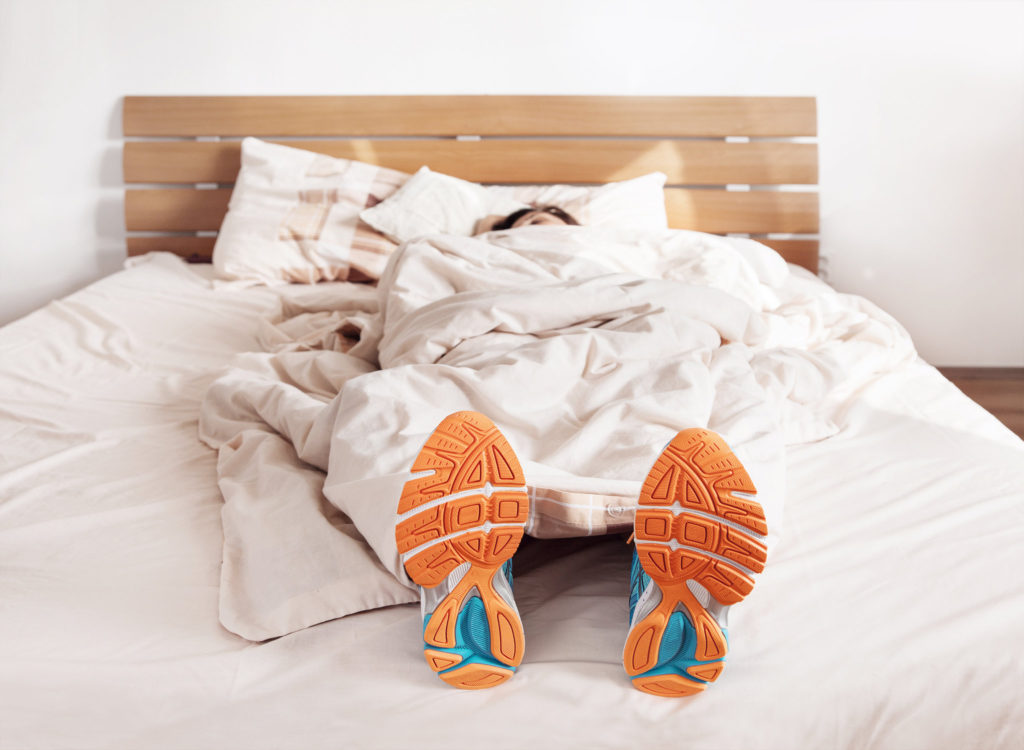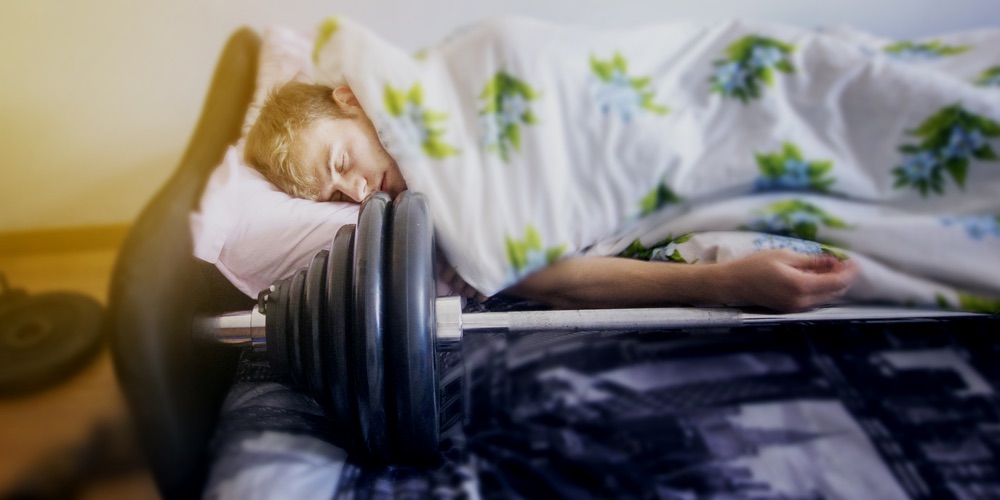Exercise is a physical stress that is imposed on the body. So, during its post-recovery phase between workouts, our body goes through a huge transformation as a result of the exercise stimulus. One of the most effective methods for recovering from a hard workout is something that you do, but not in enough quantity. It’s having adequate sleep. It’s a sure-fire method of promoting recovery so that your exercise program should produce the results you want to get adequate sleep.

The importance of sleep for muscle recovery:
Sleep has a significant impact on muscle recovery which is necessary for your body transformation. We are sure that your trainer has informed you about the importance of sleep. Also, you must be aware that if you do not get adequate sleep, you do not feel rested in the morning, and your muscles will not recover properly. Apart from this, not having enough sleep affects your efforts in the gym. So, while you may be able to do fine, with less sleep, your body goes through a huge transformation. So, let us understand the two main stages of sleep to understand your sleep’s impact on muscle recovery.
- REM (Rapid eye movement): This occurs in cycles of about 90-120 minutes throughout the night. It dominates the latter half of the sleep period. It also provides the energy to the brain that supports it during waking hours.
- Non-REM sleep: This is known as slow-wave sleep. This phase is crucial for muscle recovery and restoring the body. During this phase, your blood pressure drops and your breathing becomes deeper and slower. Your brain is resting with very little activity, so the blood supply available to your muscles increases, a delivery extra amount of oxygen that facilitates healing and growth.

The benefits of sleep:
Achieving the results from any exercise needs a planned post-workout recovery strategy. And getting an optimal quality of sleep is one of the most efficient means of allowing your body to recover from your heavy workout. So, here are the benefits of sleep for exercise recovery:
1.) It is advised that adults should get between 7-9 hours of sleep per night. Increasing your sleep time by one hour per night is simply like getting an extra night’s worth of sleep, making you relaxed totally. Also, when it comes to planning your workouts, keep in mind that the end of one workout is the beginning of the next. So, be prepared on how you recover and allow yourself to achieve the best possible results.
2.) One function of taking adequate sleep is allowing time for muscles to repair all by themselves. Growth hormone is an anabolic hormone produced during stage 3 of non-rapid eye movement. Thus, helping repair your damaged tissues during exercise. So, the longer a period of sleep the more time is for your muscle tissues to grow.
3.) Being overly tired, especially during exercise, can result in reduced reflex time. So, one important benefit of sleep is that it allows time for the removal of unnecessary metabolic waste from your brain cells. Just think of sleep as the time when your brain removes unnecessary toxins and helps your blood to flow easily. It brings oxygen and glycogen necessary for optimal cognitive performance.
4.) Metabolic overload happens when muscles exercise to the point of fatigue. Thus, exhausting the amount of glycogen available for energy production. So, when we sleep our body continues to digest carbohydrates and converts them into glycogen. It is stored in muscles cells to fuel muscle contractions. Usually, one gram of glycogen in muscle cells can hold three grams of water. Thus, helping us to increase our muscle size.
5.) Healthy sleeping is related to a healthy immune system. Yes, getting great sleep supports a strong immune system. Thus, reducing the risk of falling sick. It helps in increasing your performance and productivity,
6.) To ensure better productivity, it is crucial to plan your workouts based on your sleeping cycle. And sleeping cycle includes the amount of sleep you get each night.
Conclusion:
Too much exercise and too little sleep significantly result in overtraining. So, it is crucial to have a good night’s sleep.







